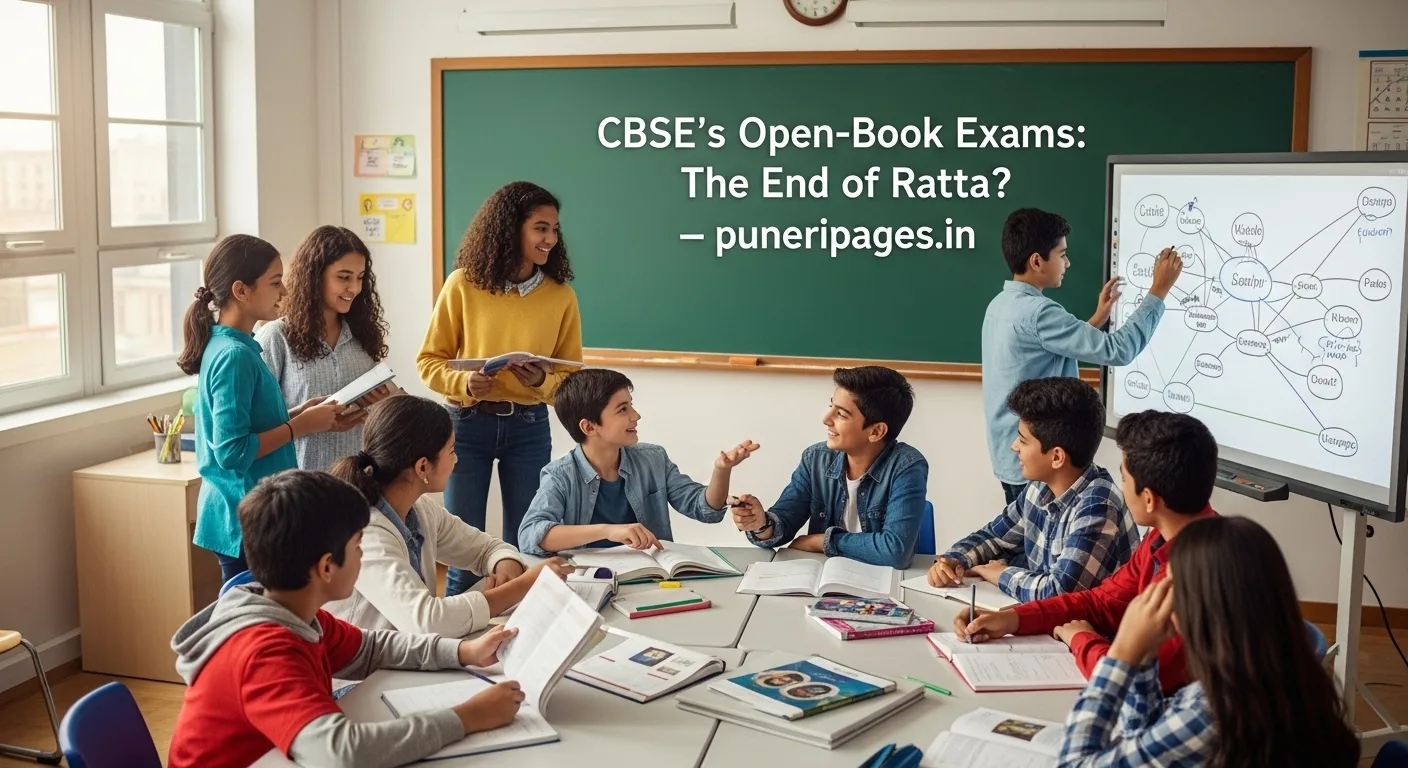
CBSE’s new open-book exams will push students to think critically and apply concepts, moving away from rote learning.
By Prashant for PuneriPages.in
If you’ve grown up in India, you probably know the drill: long nights, crammed notes, and the dreaded last-minute “ratta maar” before exams. But CBSE is planning to flip the script. Starting 2026-27, some Class 9 and 10 subjects will have open-book assessments. This isn’t just a small tweak—it’s a big leap towards exams that value thinking over memorizing.
Table of Contents
What is an Open-Book Exam (OBE)?
What it’s NOT: A free pass to just flip through your book for answers. What it IS: A test of your ability to understand, connect, and apply concepts. Your book is just a tool—your brain still does the heavy lifting. The Core Shift: From “What do you remember?” to “What can you do with what you know?”
Why This Change?
The NEP 2020 Connection: This move is part of the National Education Policy’s push to lighten the curriculum and kill rote learning. Life Skills for the Real World: In an age where Google can fetch facts in seconds, it’s your ability to think critically and solve problems that really counts.
A Quick Example
Old-Style Question: Define Newton’s Third Law of Motion.
OBE Question: Here’s a diagram of a rocket launch. Using your textbook, explain the forces involved and how Newton’s Third Law makes the launch possible.
The Difference: The second one forces you to apply what you know—it’s not just about spitting out definitions.
FAQ – Let’s Clear the Doubts
For Students:
- Will it be easier? Not really. You’ll study differently—less mugging, more understanding.
For Parents:
- Help your child by talking through ideas, not just quizzing them on facts.
For Teachers:
- Move from dictating notes to encouraging discussions, projects, and real-life problem-solving.
The Rollout Plan
- Pilot starts in select subjects for Classes 9 and 10.
- Kicks off in the 2026-27 academic year.
- Will expand based on how it goes.
Final Thoughts
It’s the end of the ratta era—at least for some subjects. Yes, it’ll take time to adjust, but this shift could give us a generation of students who can think, analyze, and tackle real-world challenges head-on.